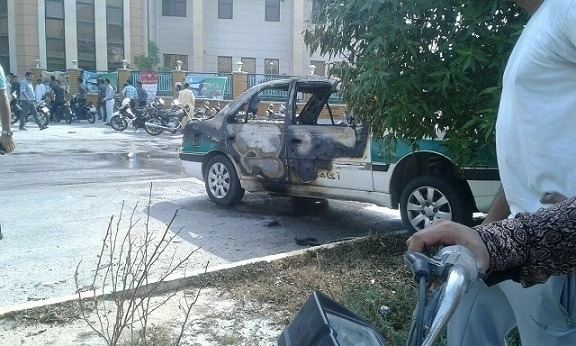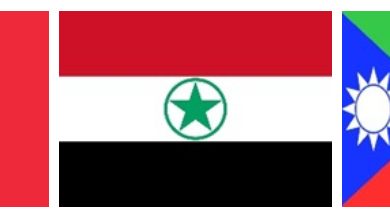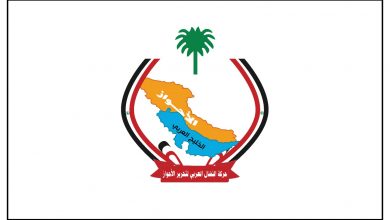Iran set to publicly execute three more Ahwazi activists shortly

Ahwaz
The Iranian regime continues to accelerate its efforts to silence Ahwazi activists through brutal repression via mass arrests and executions, with three more Ahwazi Arab activists now sentenced to death.
According to the state-run IRIB news agency, Farhad Afsharnya, the regime’s Chief Justice for Al-Ahwaz region, last week announced the imminent public execution of the three Ahwazi prisoners, who were sentenced to death following a kangaroo trial in a regime “revolutionary court” on charges of shooting at a police checkpoint in Hamidieh city.
Another four co-defendants were sentenced to prison terms ranging from 25 to 35 years each on the same charges. Two will serve their sentences in other provinces, another method used by the regime to separate and isolate Ahwazi prisoners. All the men are from the town of Hamidieh, around 20 kilometers from the regional capital, Ahwaz City. In announcing his verdict, according to the IRIB agency, Afsharnya reportedly stated that the three men sentenced to death would be publicly hanged.
The three men sentenced to death were named as Ahmad Obeidawi, Sajjad Obeidawi and Qais Obeidawi, with the latter two being brothers. Of the other four men, Mohammed Helfi was sentenced to 23 years in prison to be served in Yazd province prison and Mehdi Sayahi was sentenced to 35 years, also to be served in Yazd province prison, while Mehdi Morabi and Ali Obeidawi, a cousin of Sajjad and Qais Obeidawi, both received 25-year sentences.
Ahwazi activists said that all seven prisoners are still languishing in solitary confinement in one of the jails run by the regime’s notorious intelligence services, where they have reportedly been subjected to horrific torture. The activists further revealed that although family members of the seven men had attempted to submit applications to the court and the intelligence services office in Ahwaz for permission to visit their relatives, they had been refused any contact, including phone calls.
The kangaroo trials for the seven men were conducted, as is common for the regime, without any of the defendants being allowed legal representation, with the verdicts effectively decided beforehand.
Since regime officials have announced their intention of carrying out the public execution of the three men sentenced to death at the beginning of the new Iranian calendar year, activists fear that they may be executed in the next few days.
The Iranian regime has stepped up its already brutal oppression of Ahwazi Arabs and other minorities in Iran under the administration of the “moderate reformist” President Hassan Rouhani. Since coming to power in 2013, Rouhani has presided over the execution of at least 1,800 people as well as public beatings, floggings and amputations. The real number of the regime’s victims is believed to be far higher than the publicly admitted figure, with many executions reportedly unannounced.
With Ahwazi Arabs and other minorities increasingly viewed as a threat to the Islamic Republic’s leadership’s consolidation of a homogenous Persian Shiite nation, the theocratic regime is stepping up its already brutal repression in an effort to crush dissent, as well as implementing a policy of population transfer within Ahwaz as a means of changing the demographic composition of the region.
It is imperative that international human rights organisations and the United Nations put pressure on the Iranian regime to force it to desist from its systematic violence and oppression against Ahwazis and other minorities, and to respect the fundamental human and civil rights of Ahwazi Arabs, including the right to be educated in their own Arabic language, which they are currently denied, as well as the rights to employment, freedom of expression, free assembly and free association, as enshrined in international law.
We urge all human rights organisations and all peoples of good conscience worldwide to raise their voices and to contact their political representatives in order to force the Iranian regime to abandon its unconscionable state-sanctioned policies of racial segregation, oppression and brutality, and to free all prisoners of conscience and individuals detained simply for participating in peaceful demonstrations.
Remaining silent in the face of such monstrous crimes against humanity should no longer be considered an option. In the words of Italian-American human rights activist Ginetta Sagan, silence in the face of injustice is complicity with the oppressor.’


